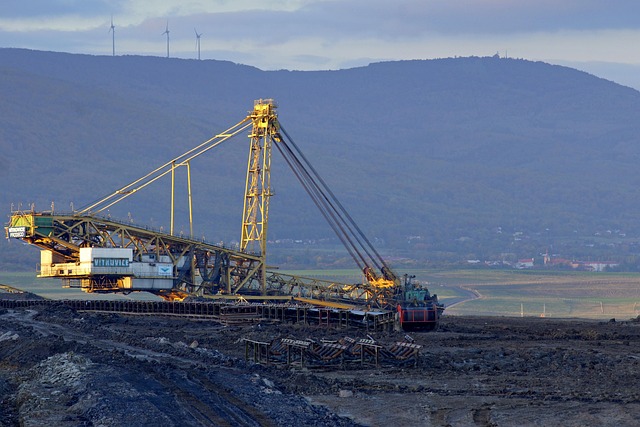The new operator, Pennsylvania-based Rosebud Mining Company, will not inherit the dozens of delinquent fines levied by the federal Mine Safety and Health Administration (MSHA) for safety violations at the Casselman mine in Garrett County, Maryland.
A Western District of Pennsylvania Bankruptcy Court judge approved a $15 million bid from Rosebud to acquire two underground mines in March, though Corsa’s creditors delayed finalizing the sale in hopes of attracting a higher bid.
In a declaration filed with the court in January, Corsa President Kevin Harrigan attributed his company’s financial troubles in part to an unpredictable market. “Economic uncertainty, inflationary pressures and corresponding monetary policy controls” pushed coal prices below Corsa’s mining costs in 2024, Harrigan wrote, straining the company’s ability to cover looming debt payments.
Corsa did not respond to a Capital News Service request for comment by press time.
The company issued layoff notices to 93 employees at the Casselman mine on March 13 – a majority of the more than 100 people working at the mine as of 2024, according to MSHA records.
Rosebud hired 50 former Corsa employees after the acquisition, most of whom remain at the Casselman mine.
The mine produced roughly 660,000 tons of coal in 2023 – a relatively small output compared to the largest mines in neighboring Pennsylvania and West Virginia, but more than twice the output of the next-largest mine in Maryland in the same year.
The Casselman mine yields metallurgical coal, used to heat blast furnaces for steel production.
While the market for thermal coal, used to generate electricity, has dwindled in the face of competition from cheap natural gas and renewable energy sources, the metallurgical coal market is relatively insulated from those pressures.
“There is still a very strong need for metallurgical coal,” said Allegany Coal & Land Co. President Steve Jenkins, whose western Maryland company leases property to small coal operators.
And although coal is not a renewable resource, Jenkins noted that Maryland’s coal seams are far from expended. “It’s just a matter of how much is accessible in the regulatory environment,” he said.
But like any commodity, the metallurgical coal market experiences price fluctuations, including an ongoing supply imbalance that pushed prices below Corsa’s mining costs.
Harrigan’s declaration makes no mention of delinquent MSHA fines, and the total amount left unpaid to the agency – just under $25,000 – is relatively minor compared to other obligations, including $21.3 million in debts acquired by purchasing or leasing mining equipment, parts and fuel.
Those unpaid fines stem from a range of safety violations, including several flagged by MSHA as “reasonably likely to result in a serious injury or illness.”
In October 2024, for instance, MSHA inspectors issued a $5,000 fine to the Corsa subsidiary operating the Casselman mine for allowing coal dust to accumulate, creating a fire or explosion hazard – one of more than 80 fines issued to the operator for the same violation since 2019, records show.
On the same day, inspectors also fined the company $2,400 for failing to provide adequate firefighting infrastructure for Casselman miners. Both fines remain delinquent, although Corsa paid other fines issued later the same year.
A bankruptcy attorney representing Corsa did not respond to a CNS inquiry about why those delinquent fines were not listed as liabilities in the company’s initial bankruptcy filing.
But Wes Addington, executive director of the Appalachian Citizens’ Law Center, said MSHA doesn’t pursue unpaid fines as aggressively as other federal regulatory agencies. The center is a nonprofit law firm based in Whitesburg, Kentucky, that represents coal miners and their families on black lung and safety cases and advocates on environmental issues related to coal extraction in the region.
“I’m skeptical (about) how much energy the government is going to put into trying to collect those fines,” he said, given MSHA’s track record of allowing mines to continue operating with thousands of dollars in delinquent safety violation fines.
The change in ownership at the Casselman mine comes as some mine safety advocates like Addington raise alarms about the risks created by an increasingly feeble MSHA.
An analysis of public data published by the Appalachian Citizens’ Law Center in March indicates that MSHA has lost roughly half of its coal mine inspection staff in the past decade.
Federal law requires the agency to inspect surface mines at least twice and underground mines at least four times annually.
Tony Oppegard, a former mine inspector who previously served as an adviser to the MSHA administrator under President Bill Clinton, told Capital News Service that he doubts the agency will be held to those standards in the current political climate.
“In years past, if MSHA was having a hard time making their twos and fours, there would generally be an oversight committee in the House and or the Senate who would call them in and want an explanation,” he said. “With the current Congress, I don’t know if they’d even care.”
The Trump administration’s decision in March to close dozens of MSHA field offices, including several in Pennsylvania and West Virginia, compounded those concerns.
“Consolidating offices will reduce emergency response efficiency by placing inspectors farther from mining sites, making it more difficult for them to respond quickly in the event of a mine disaster,” said Erin Bates, the communications director for the United Mine Workers of America. “With an already limited workforce, stretching inspectors even thinner will reduce oversight effectiveness and compromise miner safety.”
Workers at the Casselman mine are not unionized, and Maryland mines are served by an MSHA office in Morgantown, West Virginia that is not slated for closure.



Recent Comments